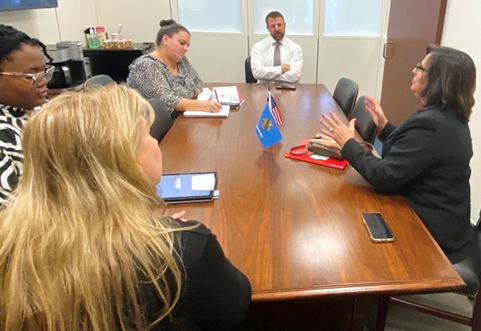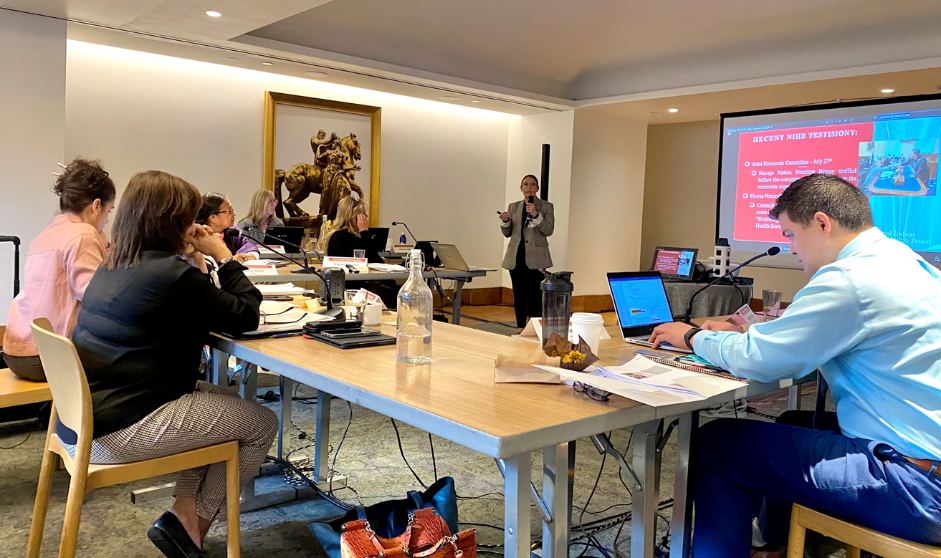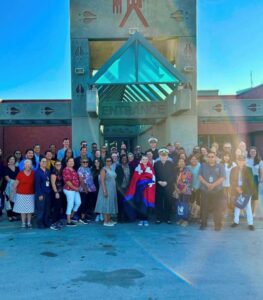From September 19 to September 20, the Tribal Leaders Diabetes Committee (TLDC) held its quarterly meeting in Washington DC. The TLDC is a Tribal advisory committee that provides input to the Indian Health Service (IHS) on policies related to diabetes and the Special Diabetes Program for Indians (SDPI). This meeting was especially important, given that SDPI will expire on September 30, 2023. SDPI reauthorization is necessary to continue SDPI after the end of 2023.
National Indian Health Board (NIHB) Congressional Relations Coordinator, Taylor Barrett, shared a legislative update at the meeting capturing the rapidly evolving congressional environment. The week of the TLDC meeting, a government shutdown and SDPI reauthorization by December both appeared likely.
IHS Director, Roselyn Tso, joined the TLDC to provide updates on current IHS projects and to discuss details on the process for SDPI’s distribution. During this time, TLDC members raised their interest in allowing SDPI programs to receive funds through 638 contracts and compacts and the various budget impacts and data sharing logistics of this proposed change.
Other topics of discussion and presentations included the Federal Advisory Committee Act and Unfunded Mandates Reform Act, the IHS Produce Prescription Pilot Program, and the National Diabetes Prevention Program. Alaska, Albuquerque, and Bemidji areas shared area reports detailing the successes and challenges of select SDPI programs. IHS also shared at the meeting that it has a plan to announce additional SDPI funding soon.
Following the TLDC meeting, committee members, acting in their capacity of as Tribal leaders, had multiple meetings with Congress to provide education on the SDPI program and its successes. NIHB facilitated meetings with five Senate and four House Offices, including a meeting directly with Congressman Salud Carbajal (CA-24).
For more information on how to take action and advocate for the reauthorization of SDPI, you can access a sample letter to send to Congress on SDPI renewal here and view sample talking points here. Despite widespread support, legislation to renew SDPI has not passed either the House of Representatives or the Senate. It will expire on September 30, 2023 unless Congress acts.






